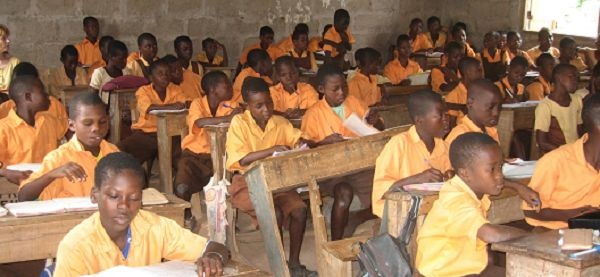
Decision to revise existing curriculum in right direction
Ghana now has a clear national policy framework for reviewing and revising the curriculum of basic education into a standards-based curriculum.
This, it is hoped, will shape the values and attitudes of learners to fit into global standards.
Educational experts have described the current curriculum as “breath over depth”, where the pupils are made to learn a lot of things on the surface; just a matter of “chew, pour, pass and forget”.
It is in this vein that the Daily Graphic would like to applaud the decision by the managers of the educational sector to revise the existing curriculum to be in tune with best practices and modern trends.
For us at the Daily Graphic, such a move could not have come at a better time than now. This is because the revised curriculum specifies what the child should know, understand and be able to do, with emphasis on the doing, because that is the highest order of thinking.
With the current level of technological advancement, it is our contention that a knowledge economy and the need to be on the same page with the rest of the world must be the driving force in our educational system.
Therefore, to create a revised curriculum that will engender improvement in learning outcomes and training in skills development, values and attitudes to enable our children to fit into today’s world is imperative.
In our view, the revised curriculum, which is a shift from the objective-based curriculum to a standards-based one, with focus on strengthening the acquisition of the 4Rs (Reading, wRiting, aRithmetic and cReativity) as foundational skills for life-long learning and national development, is a positive step towards the country’s educational development.
But what is more critical, in the opinion of the Daily Graphic, is the availability of the textbooks for the new curriculum, particularly so when the review is a complete change from the current one.
We are, however, comfortable with the announcement that the National Council for Curriculum and Assessment (NaCCA) has developed and distributed 165,000 Teacher Resource Packs for all public school teachers, from Kindergarten to Primary Six, to be used as a teaching guide for teachers while waiting for the textbooks developed under the new curriculum.
This is where supervision is key, right from the regional directorate down to head teachers, to ensure that the packs get to the teachers and also that they use them to deliver their lessons.
Supervision is critical because there had been instances in the past when teaching and learning materials meant for schools had been locked up at the regional and district directorates of education, while the real beneficiaries are denied use of those materials.
The Daily Graphic, therefore, calls on circuit supervisors and head teachers to ensure that these packs are used in the classrooms by teachers. Teachers should not be tempted to go back to the old textbooks because that will amount to defeating the purpose of the curriculum reform.
The success or otherwise of the new curriculum rests on the commitment to implement it by the primary implementers — teachers — and effective supervision by head teachers and circuit supervisors.
All those on this chain need to play their roles responsibly to achieve the needed results in the educational sector.
At a time like this when Ghana is aiming to become a country developing beyond aid, education, which is the bedrock of development, cannot be toyed with. It requires all hands on deck to make the educational system very functional to support this development agenda.
